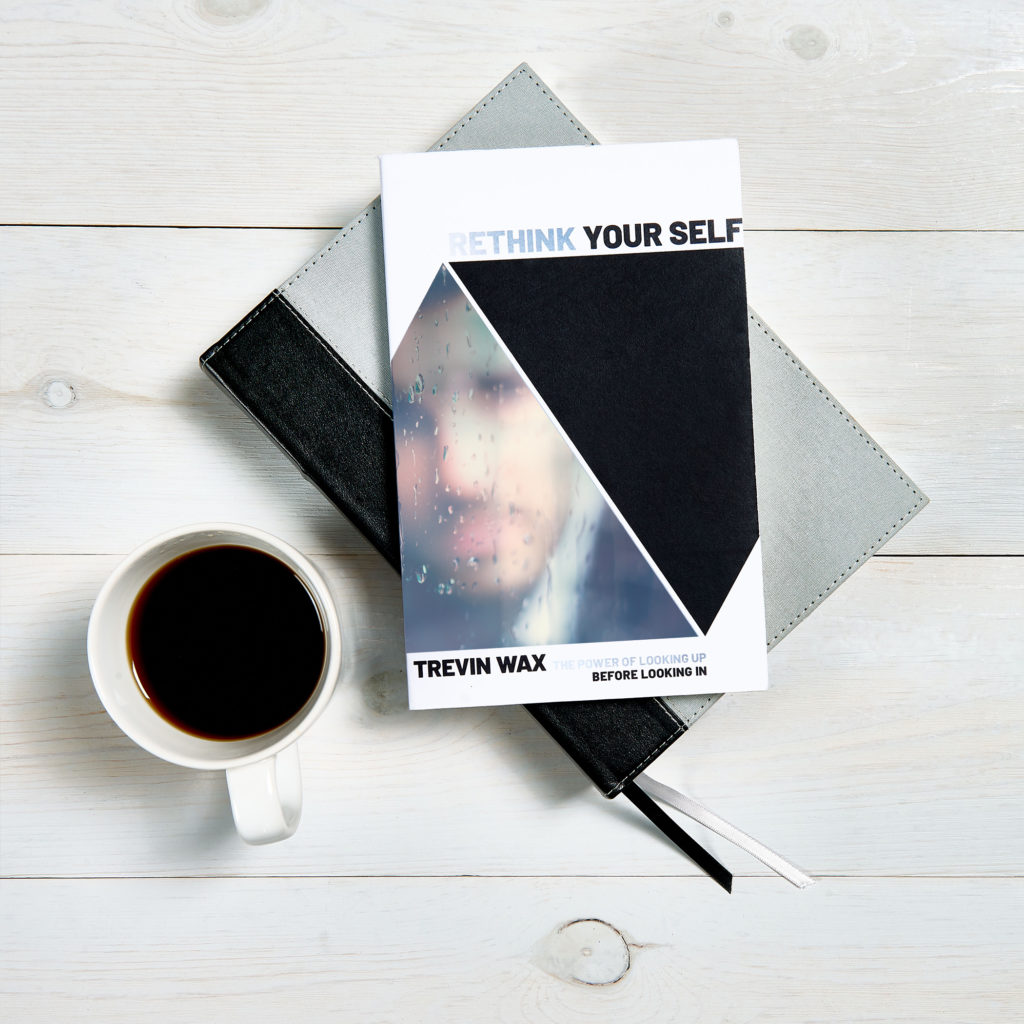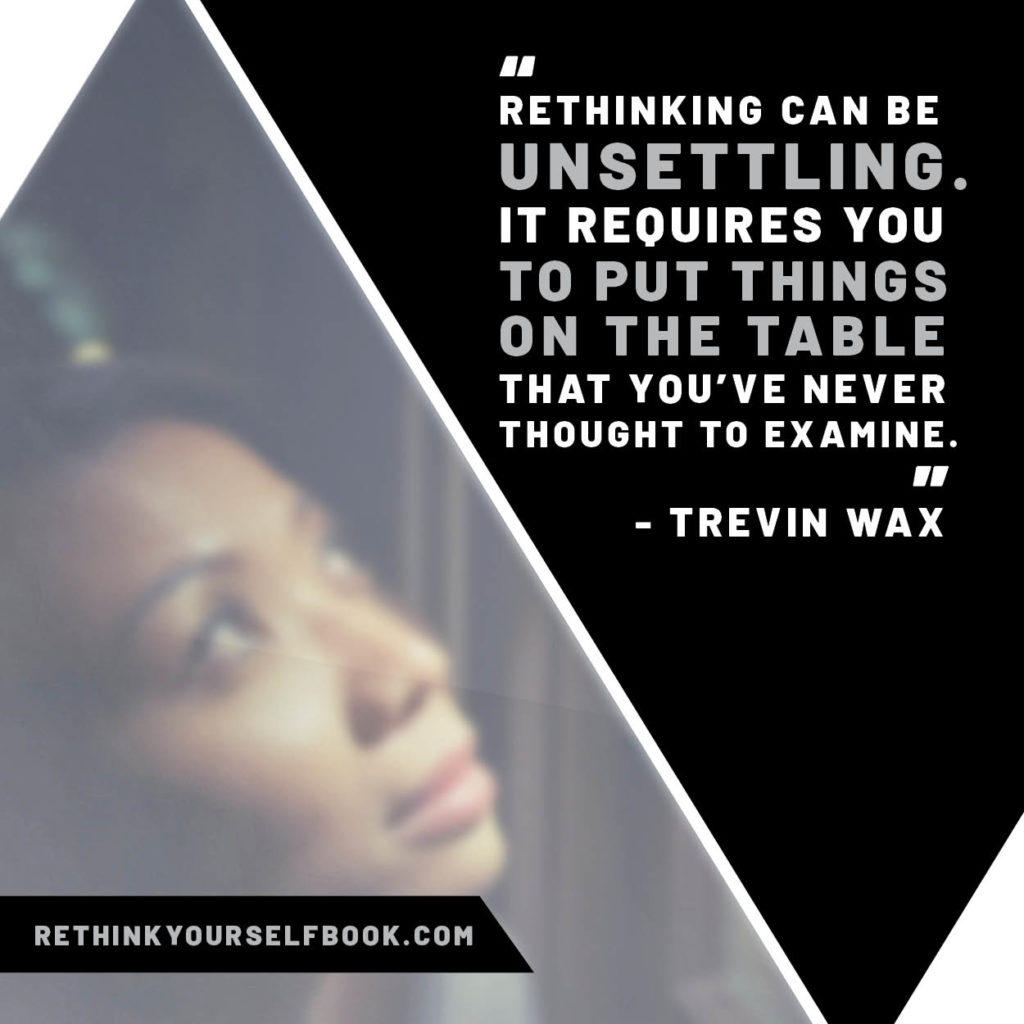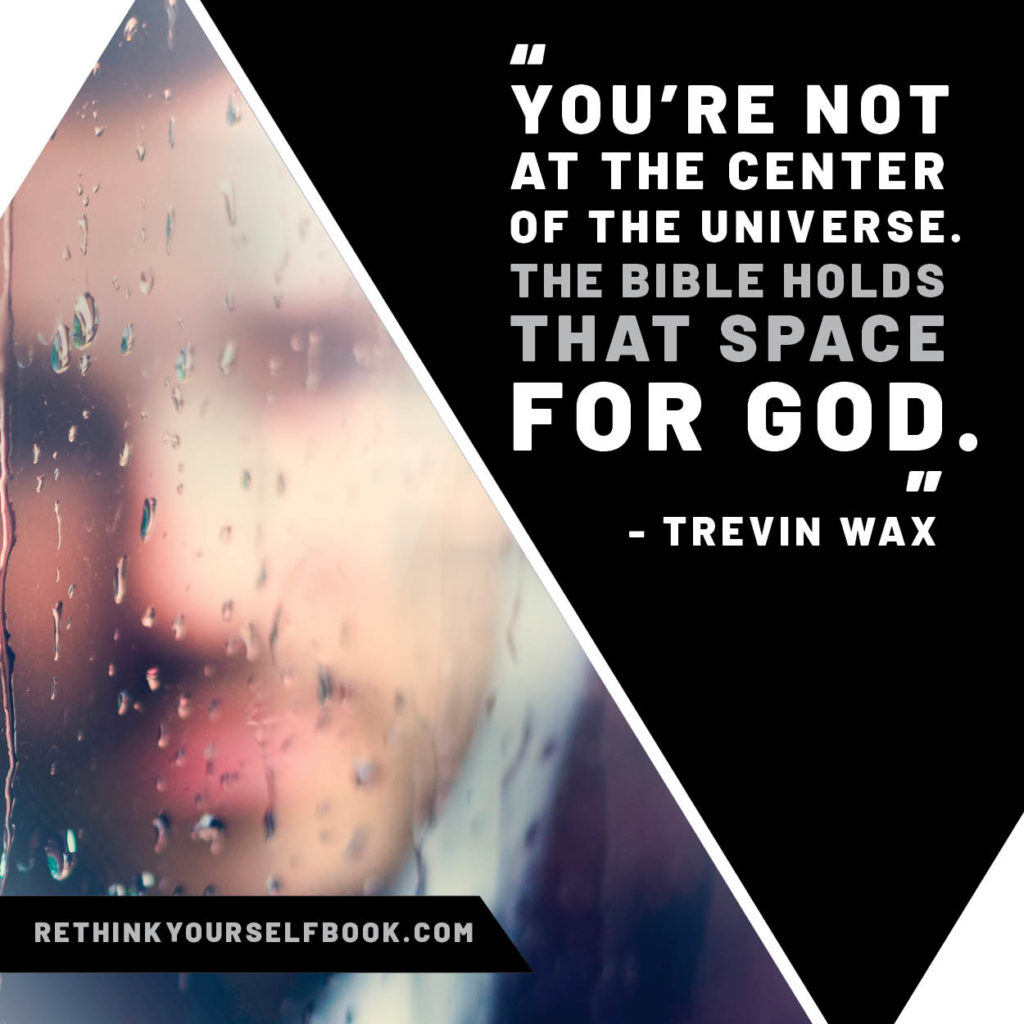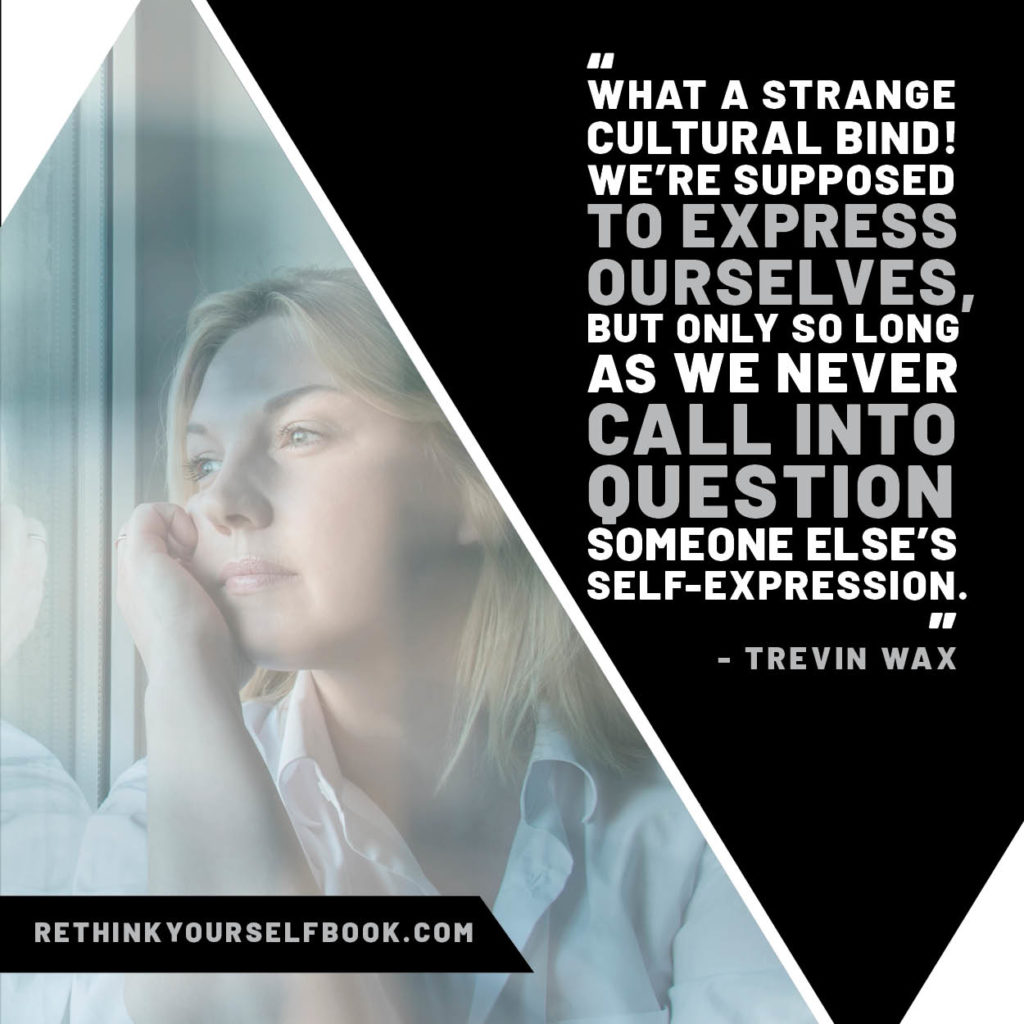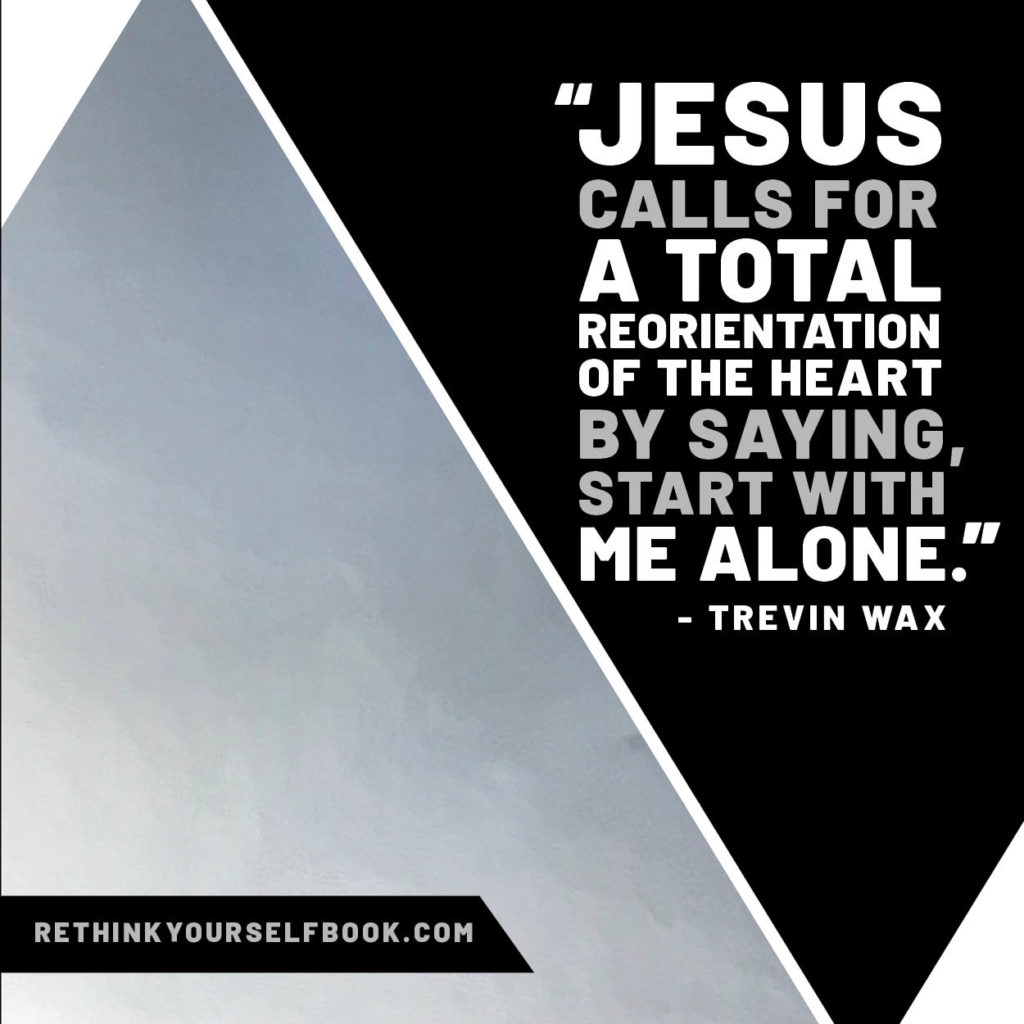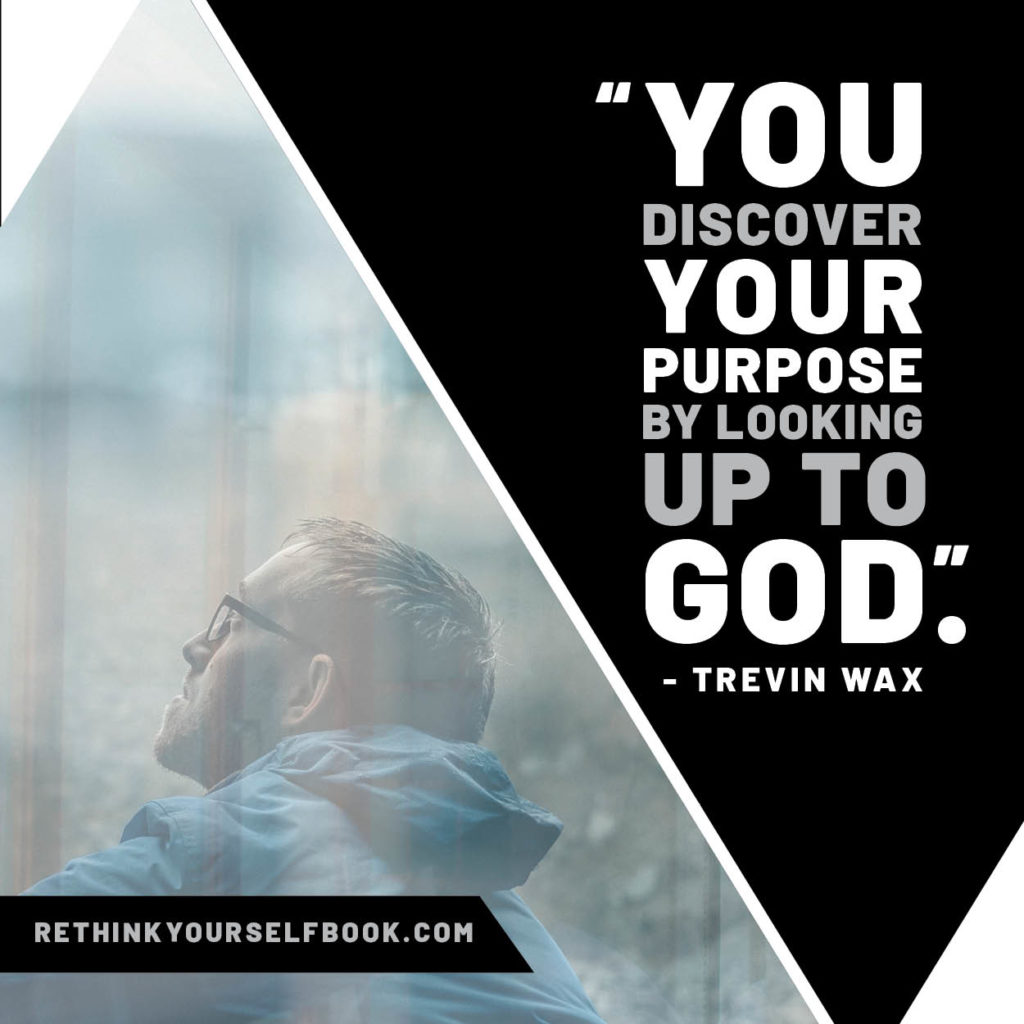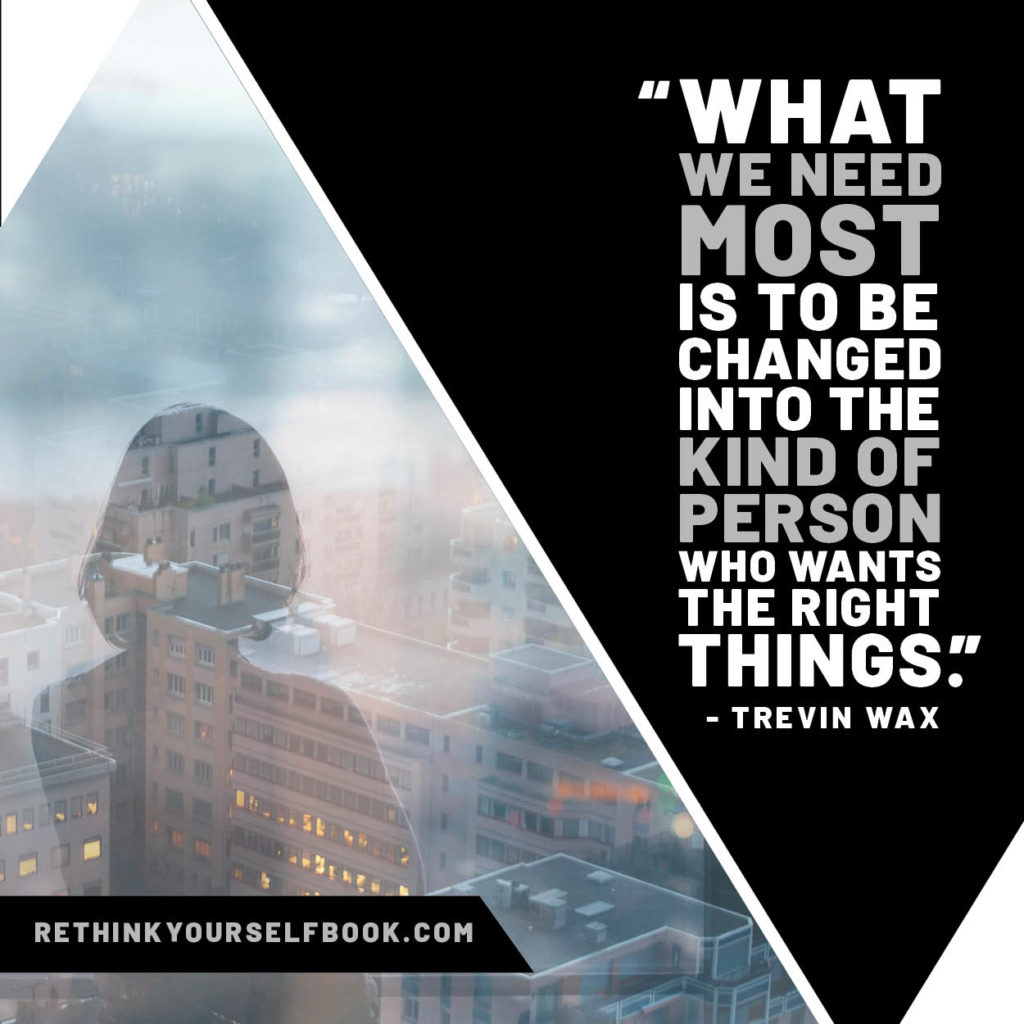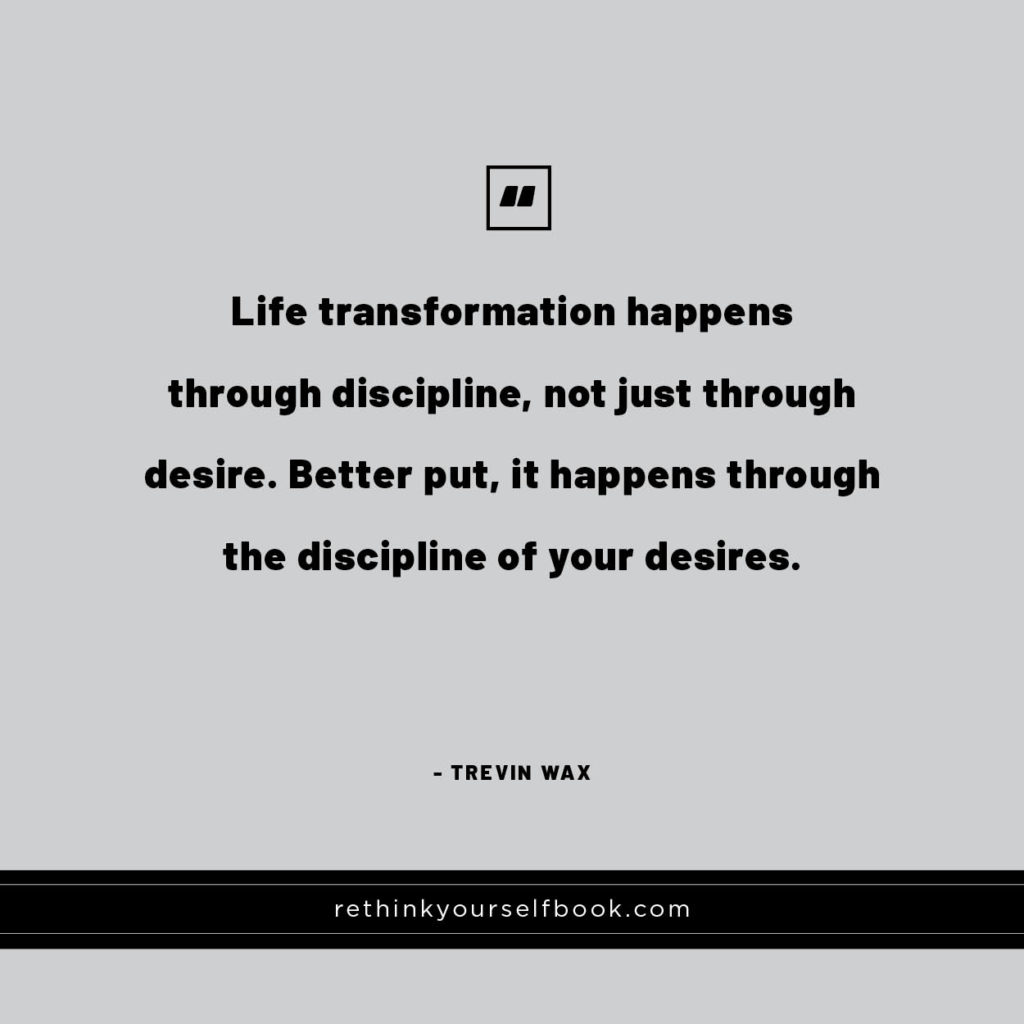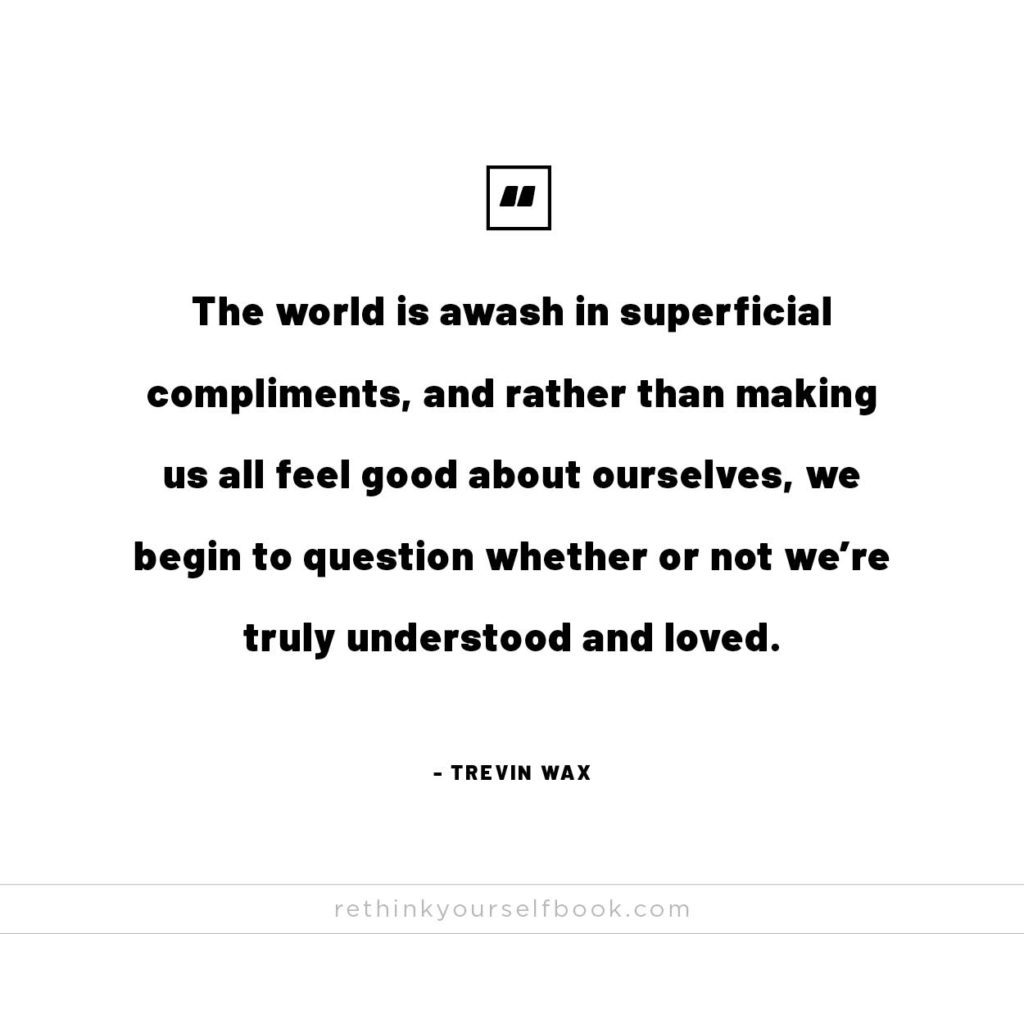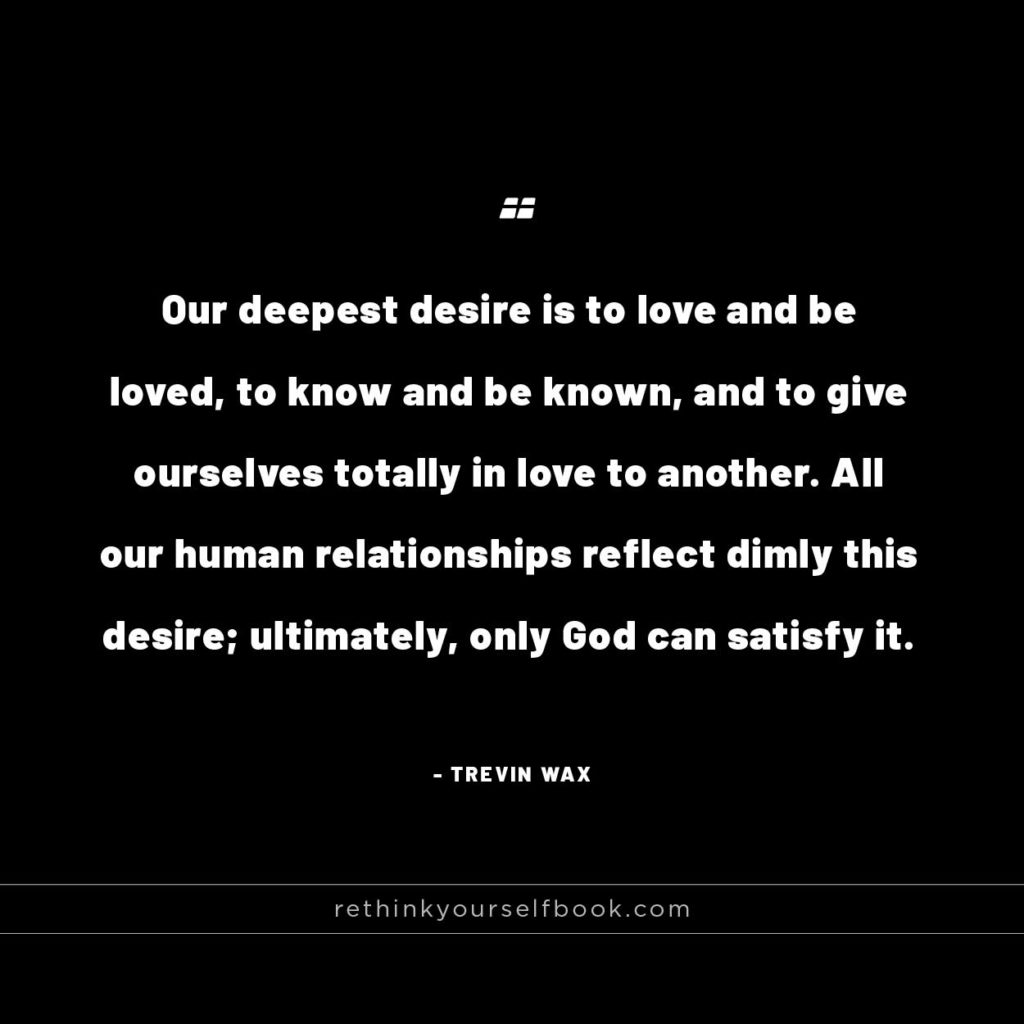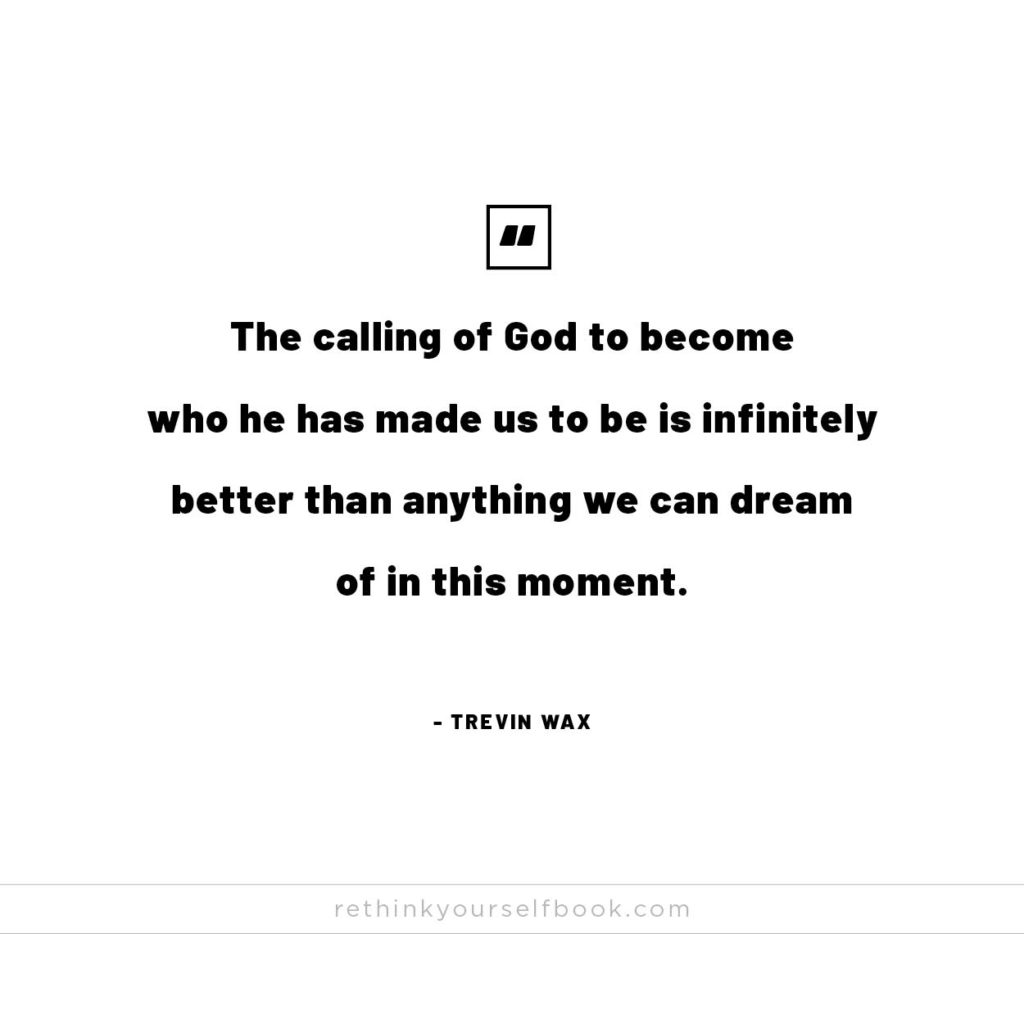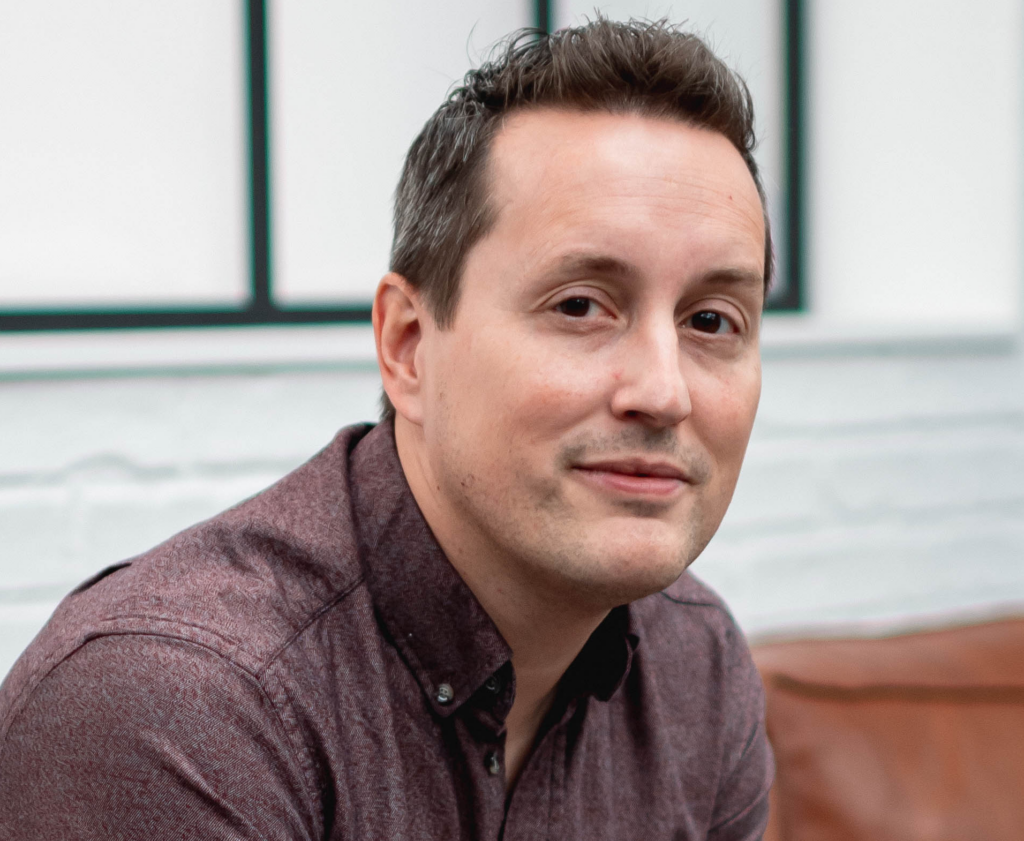Rethink Your Self sample chapter
about
Follow your heart. You do you. You are enough.
We take these slogans for granted, but what if this path to personal happiness leads to a dead-end? In Rethink Your Self, Trevin Wax encourages you to rethink some of our society’s most common assumptions about identity and the road to happiness.
Most people define their identity and purpose by first looking in (to their desires), then looking around (to express their uniqueness), and finally—maybe—looking up (to add a spiritual dimension to life). Rethink Your Self proposes a counter-intuitive approach: looking up before looking in.
It’s only when we look up to learn who we were created to be that we discover our true purpose and become our truest selves.
resources
PDF
“Trevin Wax is an insightful thinker and skilled writer. In Rethink Your Self he shows that following our own dreams and desires won’t work; we must look to God to learn who we are and are meant to be. Nothing less can bring us purpose and delight.”
Testimonial
“Trevin is a gift to church, and his book reflects this reality. In Rethink Your Self, you are going to discover your true self—self created in the image and likeness of a God who cares for us and cultivates our character to reach its redemptive potential.”
Testimonial
“Rethink Your Self is a guide for people who long to soar in life. Trevin Wax exposes unproductive frames of mind, tackles big questions, and sorts out the complexity of the human heart in amazingly clear prose. Highly recommended!”
Testimonial
“We live in a society that is obsessed with identity and yet filled with people who have no idea who they are. In this book, Trevin Wax gently persuasively questions the common sense of our day of ‘being true to yourself’ and points to the paradoxical beauty of denying yourself and following Jesus. In a culture that says ‘look within,’ we would do well to follow Trevin Wax’s advice to look up.”
Testimonial
“The common advice to ‘be yourself’ is easier given than taken. In the modern age, shaping our identities and orienting our lives is more complicated than at any time in human history. With clarity, knowledge, and wisdom, Trevin explains the unique challenges this particular cultural moment presents us in being ourselves, and places these challenges into the context of an eternal design—one that can equip each of us to be who God created and called us to be.”
Testimonial
what people are saying
an excerpt from Rethink Your Self
I assume you’re not reading this book because you want me to tell you everything you want to hear, or because you want me to reaffirm everything you already believe to be true. With a title like Rethink Your Self, you’ve probably picked up this book for one of two reasons.
The first is that you may be facing some important decisions and you want to get them right. You want to be the best version of yourself you can be, and you want to fulfill whatever calling you feel is most important in your life. But you know how easy it is to fail to reach your potential, or to fail to discern your purpose in life, and the big decisions down the road frighten you a little (or maybe, a lot!). You want to be authentic and to make choices that align with the deepest part of yourself, but you wonder if the commonsense wisdom you hear everywhere else is adequate in equipping you to find and follow the best path in life.
press inquiries
For press inquiries regarding Rethink Your Self,
please contact [email protected]

